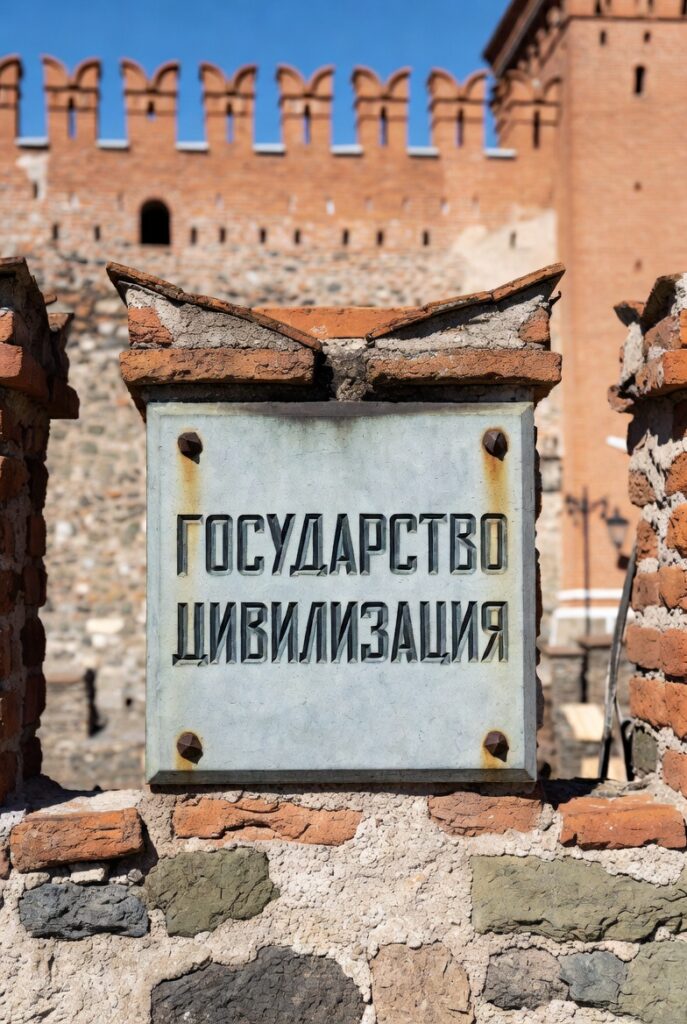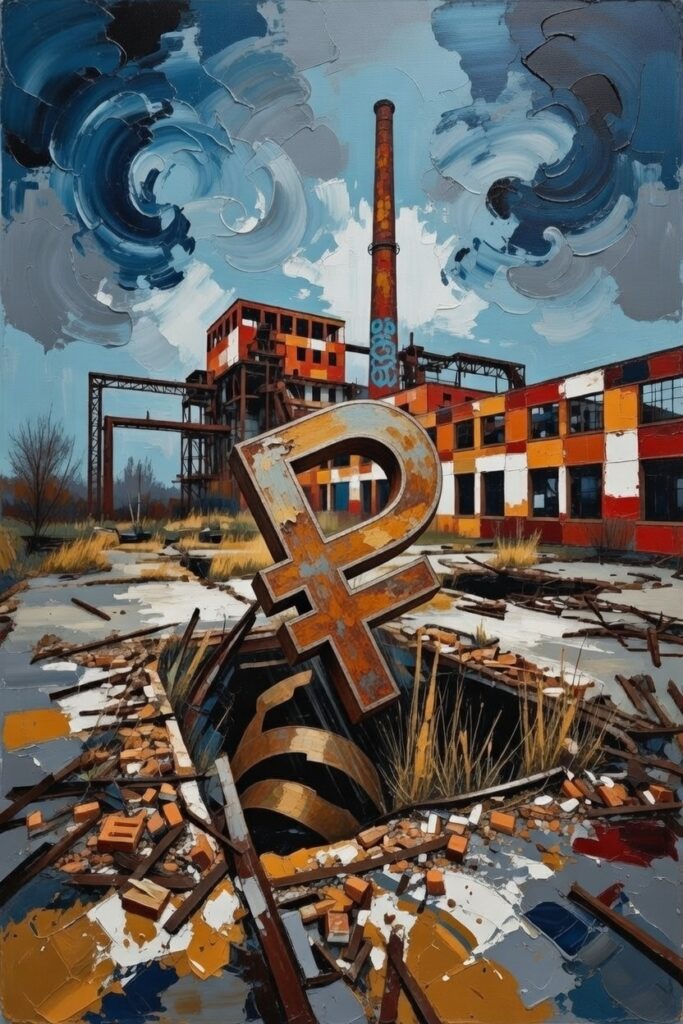Vladimir Putin discussed successors in the film «Russia. Kremlin. Putin. 25 Years». The question was posed by Rossiya-1 correspondent Pavel Zarubin, though it’s unlikely it would have remained in the final edit without Putin’s approval. Predictably, the president said nothing specific about who might replace him, stating he thinks about a «successor» «every day» and that the country should have «several candidates» for the role.
«It’s clear there are election technologies and administrative resources, but ultimately, the choice lies with the people, the Russian nation, the citizens, the voters. A person without the trust of the people has little chance of achieving anything serious. This is a fundamental issue,» Putin mused.
He spoke similarly about potential successors in 2017, but his remarks in the new film sparked widespread discussion in both opposition media and Telegram channels, as well as pro-government press and platforms. The topic of Putin’s successor is proving to be media-friendly and engaging—this segment garnered the most attention, while the film itself failed to captivate audiences. Zarubin likely asked the question to boost the film’s quotability. However, the «succession theme» is somewhat risky for the Kremlin. In 2020, Putin justified resetting his term limits by arguing that elites shouldn’t be «darting their eyes around» looking for successors (at the time, his term was set to end in 2024 with no possibility of extension). The topic is logically tied to the president’s departure and talk of a successor legitimizes the idea of a «Russia without Putin.»
The film’s content and Putin’s actions suggest he has no immediate plans to leave office, though he’s now open to discussing a successor. The reaction from politically engaged audiences indicates that both Putin’s opponents and supporters are intrigued by the question of what comes after Russia’s ruler of 25 years. They’re curious to imagine the country under figures like Mikhail Mishustin (current prime minister), Sergei Sobyanin (Moscow mayor), Sergei Kiriyenko (head of the Kremlin’s political bloc), or one of Putin’s aides (Aleksey Dyumin, an assistant to the president, is often mentioned as a potential successor). The interest in the successor topic, sparked by Putin’s vague remarks, suggests that citizens, including loyalists, are weary of the status quo. They’re ready to pin hopes on an external arbiter like Trump or a successor who might bring change in the foreseeable future. Meanwhile, Putin prefers to keep things unchanged. He lives in a comfortable time and space crafted by his inner circle: the military captures new Ukrainian territories, war-veteran officials receive appointments symbolizing a new elite, the economy resists sanctions, and salaries rise. This virtual world is far from reality, and Putin’s entourage increasingly works to shield him from real-world collisions. For instance, after Putin claimed Moscow salaries exceed even Sobyanin’s optimistic figures, a worker at a Leningrad Oblast plant, clearly coached by management, refused to disclose her income to the president. The contrast between Putin’s virtual Russia and the real country is growing starker, fueling interest in the successor topic, which implies change. Citizens aren’t drawn to Putin’s statements about starting wars, relations with the West, or tours of his fridge contents. They care more about hints of change, even if initiated top-down by Putin himself.
Uncertain United Russia
The ruling party and the Kremlin’s political bloc have begun planning for the 2026 Duma campaign. Sergei Kiriyenko, first deputy head of the Presidential Administration, and his ally Alexander Kharichev, head of the Kremlin’s monitoring department, met with United Russia members to discuss potential campaign outlines. They held business games and strategy sessions in the corporate style Kiriyenko favors. However, no clear decisions emerged from either the party or its overseers, only vague plans that the party list should feature «heroes in the broadest sense.» The reason is uncertainty about the campaign’s context: ongoing war, «euphoria» from a recent peace, or a few months post-ceasefire. The Kremlin currently views a post-war campaign as the worst-case scenario, as people may begin expressing discontent with the authorities. Even the most apolitical citizens, indifferent to the moral issues of invading another country, have grievances, primarily rising prices—a concern for most Russians. The mass return of soldiers from the front, which many citizens won’t welcome, also poses risks, with the Kremlin aware of potential increases in domestic crime and organized criminal groups. In such a scenario of social discontent, «heroes in the broadest sense» won’t salvage the party list and might even alienate some loyal voters.
Kiriyenko, Kharichev, and the party’s concerns about this scenario are understandable. United Russia has never campaigned in truly crisis-ridden conditions. In 2011, the party’s ratings were low, but there was no social crisis. Even then, falsified election results sparked significant protests, as people didn’t believe the official figures. Fourteen years ago, the Kremlin’s political bloc wasn’t yet chasing ever-higher KPIs and record-breaking targets. By today’s logic, United Russia must secure 55−60% of the vote, having won 49.8% in the last election. With a current rating of 35%, achieving this will be challenging, though the Kremlin has tools like corporate mobilization and electronic voting to hit or exceed such targets. However, a gap between real support and official results amid social discontent, which the political bloc already anticipates, could trigger protests akin to those in 2011. Kiriyenko and his team are trapped by their own tactic of setting ever-higher records and Putin’s inflated expectations for election outcomes, as the president believes the entire country is united in support of the war. This situation demands meticulous campaign planning, but due to future uncertainty, United Russia and the Kremlin can’t yet devise a strategy.
Kadyrov’s Method
Vladimir Putin met with Chechen leader Ramzan Kadyrov amid rumors of the latter’s resignation. Kadyrov, as usual, boasted about record achievements, mentioned the war, and received presidential praise. The meeting suggests Kadyrov was indeed facing serious trouble. The Chechen leader has many influential adversaries, particularly among security officials from the FSB, Interior Ministry, and military, who remember the Chechen wars and Kadyrov’s initial allegiance. The security establishment believes Kadyrov imposes his own rules in the republic, distinct from Russia’s power vertical, and thus needs replacing. Kadyrov’s sole method of countering enemies is to secure a meeting with Putin and gain his approval, granting temporary immunity. The method worked this time too. However, Kadyrov is increasingly reliant on calling on the «big brother.» His last meeting with Putin was in August 2024, when the president even visited Chechnya. That immunity lasted less than a year. Kadyrov’s adversaries will likely continue their campaign against him.










